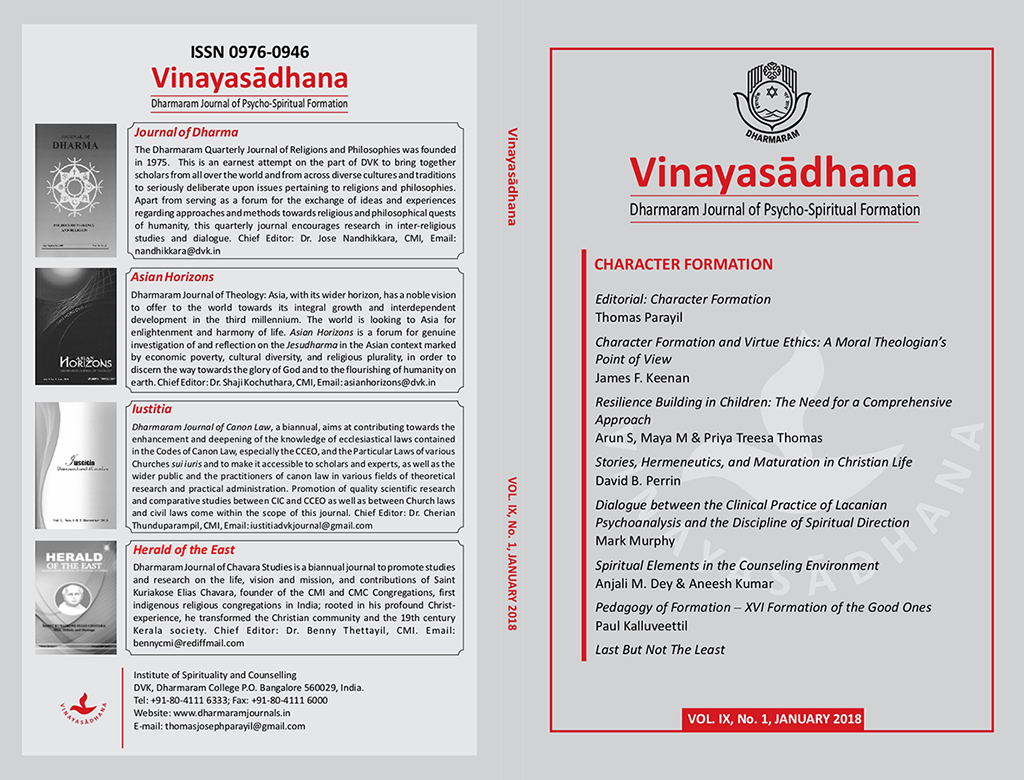Character Formation and Virtue Ethics
A Moral Theologian’s Point of View
Keywords:
Virtue ethics, Character Formation, Moral TheologyAbstract
This essay on character formation from the perspective of a moral theologian working on virtue ethics offers seven reasons for the following virtue as a worthy method for teaching character formation: virtue ethics uses familiar, ordinary and fairly specific language; deals with ordinary life; is a very active ethics; is a very comprehensive system; is fairly easy to teach; teaches us that virtues never stand alone; and, that virtues are fundamentally social. The essay develops from each point, building on one another like building blocks so that the reader can appreciate how inclusive and robust the work of virtue ethics today is.
References
Chan, L. (2013). Biblical Ethics in the 21st Century: Developments, Emerging Consensus, and Future Directions. Mahwah: Paulist Press.
Chan, L. (2015). The Ten Commandments and the Beatitudes. Bangalore: Dharmaram Publications.
Daly, D. (2010). The relationship of virtues and norms in the Summa Theologiae. Heythrop Journal, 51, 214-229.
Frankena, W. (1973). Ethics. Englewood Cliffs: Prentice Hall.
Getek Soltis, K. (2011). The Christian virtue of justice and the U.S. prison. Journal of Catholic Social Thought, 8(1): 37-56.
Griener, G. & Keenan, J. (Eds.) (2017).A Lúcás Chan reader: Pioneering Essays on Biblical and Asian Theological Ethics. Bangalore: Dharmarham Publications.
Keenan, J. (1995). proposing cardinal virtues. Theological Studies, 56(4), 709-729.
Kekes, J. (1988). The Examined Life. Lewisburg: Bucknell University Press.
MacIntyre, A. (2007). After Virtue. Notre Dame: University of Notre Dame Press.
Noonan, Jr., J. (1957). The Scholastic Analysis of Usury. Cambridge: Harvard UP. Nussbaum, M. (1986). The Fragility of Goodness: Luck and Ethics in Greek Tragedy and Philosophy. New York: Cambridge University Press.
Pieper, J. (1966). The Four Cardinal Virtues. Notre Dame, Ind.: University of Notre Dame Press.
Pincoffs, E. (1986). Quandaries and Virtues: Against Reductivism in Ethics. Lawrence: University of Kansas Press.
Spohn, W. (2002). What are They Saying About Scripture and Ethics? Mahwah: Paulist Press.


